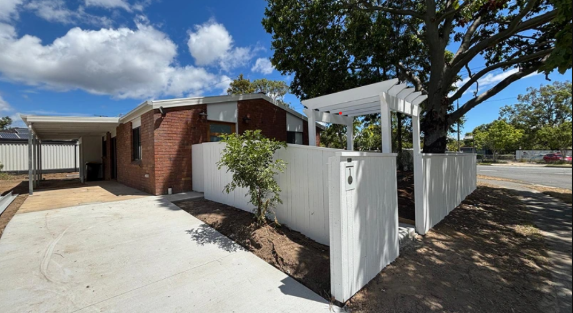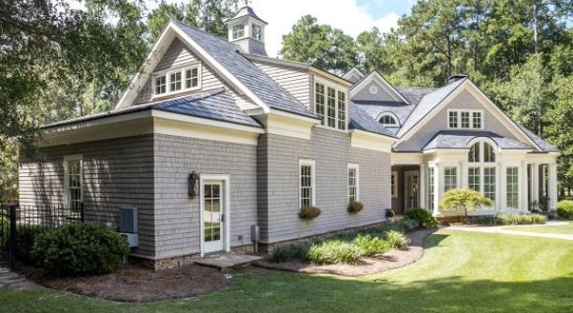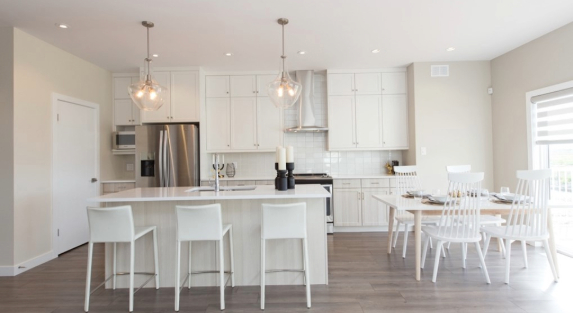Introduction :
:Building your first home can be an exciting yet overwhelming experience. The process of constructing a home from scratch involves numerous steps, decisions, and considerations that can quickly become daunting. As a first-time home builder, it’s natural to feel uncertain about where to begin, how to navigate the challenges, and which decisions are most important. From choosing the right location to selecting the perfect materials, each step plays a vital role in creating your dream home. The pressure of staying within budget, managing timelines, and ensuring that everything meets your expectations can also add to the stress. However, with the right guidance and preparation, the journey can be more manageable. Whether you’re designing a custom home or working with an architect, it’s essential to understand the building process and take the time to research and plan each phase carefully. The more informed and organized you are, the smoother the experience will be. To help alleviate some of the stress and confusion, we’ve put together a list of 10 essential tips for first-time home builders. These tips will offer valuable insights into what to expect, how to stay on track, and how to make informed decisions throughout the entire process of building your new home.
1. Research and Plan
When it comes to building a home, research and planning are the foundation of a successful project. It’s tempting to jump into the process, especially if you’re excited about the idea of creating your dream home. However, skipping this crucial step can lead to costly mistakes and setbacks. Before breaking ground, take the time to thoroughly research the local housing market, zoning laws, and the various building codes that might affect your project.
Start by looking at the local housing market to get a sense of the property values in the area. This will help you understand the costs associated with land, utilities, and construction. Understanding local property values is vital in determining how much you can afford and whether your budget aligns with the area’s pricing trends. It also helps you make informed decisions when selecting your location.
Next, familiarize yourself with zoning regulations and local building codes. Zoning laws dictate how land can be used, including what types of homes can be built and where. These regulations can vary by location, so understanding them is essential to avoid any legal issues down the road. Additionally, local building codes will specify the materials, construction methods, and safety standards you must follow, ensuring that your home meets all requirements for safety and livability.
Another key part of the research phase is seeking advice from experienced home builders or professionals who have been through the process before. They can offer insights on what works and what doesn’t, helping you avoid common mistakes and making sure you’re following the best practices. Talking to professionals also allows you to ask questions about things you might not have considered, like potential cost-saving techniques or how to ensure the longevity of your home.
By dedicating time to research and planning upfront, you lay the groundwork for a smoother, more efficient home-building experience.
2. Get Your Finances in Order
Before embarking on the journey of building your home, it’s essential to get your finances in order. Building a home involves more than just the cost of purchasing land and materials—it’s a significant financial commitment that includes a range of hidden costs that can easily add up. Having a clear understanding of what you can afford will ensure you avoid surprises and stay within budget throughout the process.
Start by evaluating your overall financial situation. Consider your current income, savings, and any other financial obligations you may have, such as loans or ongoing expenses. From there, determine how much you can comfortably allocate toward your home project without stretching your finances too thin. Remember that building a home often takes longer than expected, so it’s essential to have a buffer for unexpected expenses or delays.
Once you have a general idea of your budget, break it down into specific categories. The largest portion of your budget will likely go toward purchasing land and paying for construction labor, but there are also additional costs that can quickly add up. These may include materials, utilities, permits, insurance, and even the cost of hiring an architect or designer if you’re opting for custom plans. It’s also crucial to factor in contingencies for unforeseen issues, such as changes in material prices or additional work that may arise during construction.
Consider talking to a financial advisor or a mortgage specialist who can help you understand the financing options available, such as construction loans. They can provide insights into how much you can borrow and the best repayment terms for your situation. Having a solid financial plan in place before you start the building process will help keep your project on track and avoid any financial stress down the road.
3. Work with an Experienced Builder
When it comes to building your dream home, working with an experienced builder is one of the most crucial decisions you’ll make. While it might be tempting to go with a less expensive option or attempt a DIY approach, partnering with a knowledgeable and skilled builder can ultimately save you both time and money in the long run.
An experienced builder brings a wealth of knowledge to the table, understanding the intricacies of the building process from start to finish. They can guide you through every stage, from design and permits to the actual construction and final inspection. They are familiar with local building codes, zoning laws, and the best materials for your specific project, ensuring everything is done by the book and up to standard. This can save you from costly mistakes or delays that often result from cutting corners or overlooking critical details.
An experienced builder also has established relationships with subcontractors, suppliers, and other professionals, which can lead to discounts or better rates on materials and services. Additionally, they know how to manage the construction schedule effectively, ensuring that work is completed on time and within budget. They can anticipate and handle challenges that may arise, addressing issues before they become major problems. Their experience in project management also means they can streamline the process, making it more efficient and less stressful for you.
For example, a builder like Inno Services Groups has a proven track record of delivering quality homes on time and within budget. Their expertise in managing timelines, budgets, and tradespeople ensures that your project will be handled with care and precision, giving you peace of mind throughout the process.
Ultimately, choosing the right builder can make all the difference in ensuring your home is built to your specifications and in a cost-effective manner.
4. Have a Detailed Plan
Having a detailed plan in place is one of the most important steps in ensuring your home-building project runs smoothly and is completed on time. A well-thought-out plan serves as a roadmap, guiding you through each phase of the construction process and helping you stay organized. Without it, it’s easy to become overwhelmed by the many moving parts involved in building a home.
Your plan should start with a clear budget that outlines all expected costs, including land, materials, labor, permits, and any other expenses that may arise during construction. It’s essential to include a contingency fund for unforeseen costs, as things rarely go exactly as planned. By having a buffer, you won’t be caught off guard by price increases or unexpected issues that may arise.
In addition to budgeting, your plan should include a timeline that breaks down the entire project into manageable stages. Each phase, from the foundation to the final finishing touches, should have a set timeframe, allowing you to track progress and stay on schedule. It’s important to allocate enough time for each step to avoid rushing through critical stages, which could lead to mistakes or subpar work.
Having a detailed plan also helps when coordinating with contractors, subcontractors, and suppliers. They’ll know exactly what’s expected of them, which can lead to better communication and fewer delays. Regularly reviewing and adjusting the plan as the project progresses will help ensure that everything stays on track.
Overall, a comprehensive and realistic plan not only keeps you organized and in control but also minimizes the chances of costly delays and disruptions, helping you bring your dream home to life with greater ease.
5. Invest in Quality Materials
Investing in quality materials is one of the most important decisions you’ll make when building your home. While it may be tempting to cut costs by choosing cheaper options, spending a little more upfront on high-quality materials can save you money in the long run. Not only will these materials improve the durability and longevity of your home, but they will also contribute to its sustainability and energy efficiency, making your home more environmentally friendly and cost-effective to maintain.
Start by considering the durability of the materials you choose. High-quality materials, such as strong concrete, durable wood, and long-lasting roofing materials, will withstand the test of time and weather, reducing the likelihood of repairs or replacements down the road. Materials that are built to last also hold up better against wear and tear, ensuring that your home maintains its value for years to come.
In addition to durability, think about the sustainability of the materials you use. Choosing eco-friendly materials, such as reclaimed wood, low-VOC paints, and energy-efficient insulation, can reduce the environmental impact of your home. These materials are often sourced responsibly and have a smaller carbon footprint, which can make your home greener and more energy-efficient. This is especially important in today’s world, where sustainability is becoming an increasingly important consideration for homeowners and builders alike.
Lastly, consider the energy efficiency of the materials. Proper insulation, energy-efficient windows, and high-performance HVAC systems can significantly reduce your home’s energy consumption, keeping utility bills low and helping the environment. High-quality materials that prioritize energy efficiency will create a comfortable living environment while reducing your long-term costs.
By investing in quality materials, you’re ensuring that your home is not only built to last but also supports a healthier environment and a more efficient living space.
6. Consider Your Lifestyle
When building your home, it’s crucial to consider your lifestyle and how it will evolve over time. Your home should be more than just a physical structure; it should be a space that aligns with your personal preferences, daily routines, and long-term goals. By thinking carefully about how you plan to use your home both now and in the future, you can ensure that it accommodates your needs and enhances your lifestyle.
Start by evaluating your current lifestyle. Consider the number of people living in your home, their activities, and any specific needs. For example, if you have young children or plan to start a family, you may prioritize child-friendly spaces, such as extra bedrooms or a safe, open play area. If you entertain frequently, you might want an open-concept kitchen and living room that fosters socializing, or even a dedicated dining room for gatherings. If you’re an avid cook, investing in a high-end kitchen with premium appliances and plenty of counter space could be a priority.
It’s also important to think about future needs. How might your lifestyle change over the next 5, 10, or 20 years? Will you need more space for a growing family or a home office if you start working remotely? Think about features that will make your home adaptable to these future needs, such as accessible bathrooms, spacious hallways, or extra bedrooms that can serve different functions as your life progresses.
Additionally, consider how the home will support your hobbies and interests. Whether it’s a dedicated workout room, a home theater, or a garden, integrating these spaces into your design will make your home truly yours. By planning with your lifestyle in mind, you can ensure that your home will not only meet your needs today but also accommodate your changing preferences in the years to come.
7. Prepare for the Unexpected
No matter how well you plan, unexpected issues are almost always bound to arise during the home-building process. From delays in construction to unforeseen costs, it’s essential to prepare for these bumps in the road so that they don’t derail your entire project. The key to managing these surprises is having a contingency plan in place—one that allows you to adapt quickly and keep the project moving forward without breaking the bank or missing deadlines.
Start by building a contingency fund into your budget. Ideally, this should be around 10-15% of your total project cost, giving you a financial cushion to cover unforeseen expenses. Whether it’s an increase in material prices, unexpected repairs, or changes to the design, this fund ensures that you’re not caught off guard and scrambling for extra money when something goes wrong. Without this safety net, minor setbacks can snowball into major financial challenges.
It’s also important to be flexible in your timeline. Construction projects rarely go exactly as planned. Weather delays, supply chain issues, or even last-minute design changes can throw off your schedule. Having a buffer in your timeline allows you to adjust without feeling rushed or stressed. It also gives your builder enough room to address any problems that come up without compromising on the quality of the work.
Furthermore, maintain open communication with your builder, contractor, and any subcontractors. If an issue arises, you want to be informed early on so that decisions can be made quickly. The sooner you address a problem, the easier it will be to fix it and stay on track.
By preparing for the unexpected and having a contingency plan, you can minimize disruptions and ensure that your home-building experience remains as smooth and stress-free as possible.
8. Don’t Skimp on Inspections
One of the most critical steps in building your home is ensuring that everything is up to code and meets safety standards. While it can be tempting to skip certain inspections in order to save time or money, not skimping on inspections is essential to the long-term integrity of your home. These inspections are crucial checkpoints during the building process that help ensure your home is structurally sound and compliant with local regulations.
Throughout the construction process, there are several key stages that require inspections. From the foundation to the electrical wiring, plumbing, and final finishing, having a professional inspector assess each phase helps catch any potential issues before they become major problems. Missing these inspections can lead to costly repairs later on, or even worse, jeopardize the safety of your home.
For instance, structural inspections ensure that your home’s foundation is solid, walls are correctly aligned, and the framing is built to withstand the elements. Electrical inspections check that all wiring is safe, up to code, and correctly installed, reducing the risk of fire hazards. Similarly, plumbing inspections verify that pipes are installed properly and there are no potential leaks or issues with water pressure. Each inspection provides an opportunity to address problems early, preventing expensive fixes later.
Additionally, regular inspections offer peace of mind, knowing that your home is being built to the highest standards. They also help avoid delays in getting your final approval or certificate of occupancy when the project is completed.
By investing in thorough inspections, you’re protecting not only your investment but also the safety and functionality of your new home. Don’t cut corners when it comes to inspections—your future self will thank you for it.
9. Take Time to Enjoy the Process
Building a home is an exciting but lengthy process, and while it can certainly be stressful at times, it’s important to take time to enjoy the journey. The road to your dream home might seem overwhelming with all the decisions, planning, and unexpected hurdles, but this is a rare and special experience that deserves to be savored. Instead of focusing solely on the final outcome, try to appreciate the progress you’re making along the way.
Start by celebrating the small milestones. Whether it’s the completion of the foundation, the framing going up, or seeing the walls painted, these moments signify important progress and should be acknowledged. Taking a step back to recognize these achievements can provide a sense of accomplishment and keep you motivated when challenges arise. Each stage brings you closer to the vision you’ve worked so hard to create, and those small wins can make the process feel less daunting.
It’s also helpful to keep in mind that building a home isn’t just about the destination—it’s about the experience. There will be moments of excitement, creativity, and personal growth as you navigate decisions and collaborate with builders, designers, and contractors. Don’t get lost in the details or rush through the process; instead, enjoy the opportunity to make your home uniquely yours. Reflect on the choices you’re making, whether it’s picking out materials, deciding on design elements, or imagining how your family will use the space.
Building a home is a major life achievement, so take time to breathe, enjoy the process, and appreciate the journey. It’s easy to get caught up in the stress, but keeping a positive perspective will not only make the process more enjoyable but also help you build a home that truly reflects your dreams.
10. Ask For Help
One of the most important things you can do during the home-building process is to ask for help when needed. Even if you’ve done thorough research and feel confident in your decisions, there’s no shame in seeking the advice and support of experienced home builders, contractors, or other industry professionals. Their expertise can be invaluable in guiding you through complex tasks, helping you avoid costly mistakes, and ensuring the project goes as smoothly as possible.
Experienced builders and contractors bring a wealth of knowledge to the table. They can provide insights into design, materials, construction techniques, and even local regulations that may not be immediately obvious to someone who is building a home for the first time. Asking for advice early on can help you make more informed decisions, prevent missteps, and streamline the entire process. Whether you’re unsure about the best materials to use, need advice on managing your budget, or want help choosing the right subcontractors, there are professionals who can offer solutions tailored to your needs.
Additionally, don’t hesitate to ask for help from friends, family, or online communities. Sometimes, a second opinion or a fresh perspective can make all the difference. Friends and family may have gone through the home-building process themselves and can share their experiences or provide emotional support when things get stressful. Online forums and groups dedicated to home building can also be great resources for advice and tips from others who have been through similar situations.
By asking for help and utilizing available resources, you can make the home-building process less overwhelming. Remember, you don’t have to do it all alone. With the right support, you can bring your vision to life and build a home that meets your needs and exceeds your expectations.
Conclusion :
Building your first home can be both an exciting and challenging experience. By following these key tips—researching and planning, getting your finances in order, working with an experienced builder, having a detailed plan, investing in quality materials, considering your lifestyle, preparing for the unexpected, not skimping on inspections, taking time to enjoy the process, and asking for help—you can navigate the complexities of home construction with more confidence and ease. Each step is an opportunity to create a space that reflects your needs, tastes, and long-term goals. While the journey may involve some bumps along the way, remember that with careful planning, support from professionals, and a positive mindset, you’ll achieve the dream home you’ve envisioned. Good luck, and enjoy every moment of this rewarding process!
















